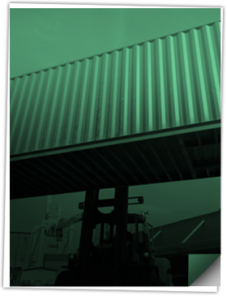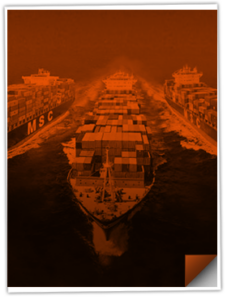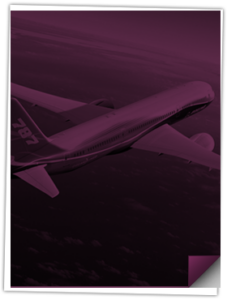Featured Headlines:
Fresh Breathalyzer Test Authorized by FDA
Shanghai Lockdown Spurs Tax Incentives
Export-Import Bank Banking on Exports
Fresh Breathalyzer Test Authorized by FDA
- On April 14th, the US Food and Drug Administration (FDA) issued an Emergency Use Authorization (EUA202006) to approve the limited use of “InspectIRCovid-19 Breathalyzer”.
- The breathalyzer—developed by InspectIR Systems LLC—is the first coronavirus test capable of detecting the chemical compounds associated with SARS-CoV-2 infections in breath samples; patients must be 18 years or older and without COVID-19 symptoms.
- All samples must be collected, analyzed and performed by trained operators under the supervision of licensed healthcare providers in an authorized location, which include doctor’s offices, hospitals, and mobile testing sites.
- Click here to view official FDA notice.
UK Plastic Wrapped with Taxes
- Effective April 1st, the United Kingdom (UK) introduced the Plastic Packaging Tax (PPT) on plastic packaging products that contain less than 30% recycled plastic content.
- The PPT applies to UK manufacturers and importers of finished and/or filled plastic packaging that are liable to register with the HMRC (Her Majesty’s Revenue and Customs).
- Businesses should proactively assess and determine whether or not they are required to register; click here to learn how to make due diligence checks for PPT.
New ACE in the Hole
- Earlier this month, US Customs and Border Protection (CBP) issued a notice to advise the trade community that a new Forms tool will deploy within the Automated Customs Environment (ACE) on April 23, 2022; the latest enhancement will update CBP Forms 28,29,4647, as well as the Docs Required functionality.
- Learn more about the deployment here: ACE Form Modernization.
Shanghai Lockdown Spurs Tax Incentives
- On March 29th, the Shanghai Municipal government released policy measures, including tax and fee cuts, financial support, rent cuts for small businesses, to boost the growth of enterprise
- There is an implementation of large-scale tax rebates on Value Added Tax (VAT) to provide cash flow support to enterprises and to promote investments.
- The full refund of incremental VAT credit is now available to micro and small firms in all industries; all qualified enterprises will be able to apply for this full refund of incremental VAT credit on a monthly basis starting April 1, 2022.
Pray For Your Dray
- Booking lead times have increased for every single US seaport and rail ramp across the country—which is the first time this has occurred since this metric was invented in 1990!
- THE BAD… the following gateway ports and rail ramps require 7-10 days’ notice to secure drayage coverage:
- Rail ramps: Atlanta, Cleveland, Columbus, Memphis, and Nashville.
- Seaports: Baltimore, Jacksonville, Los Angeles, and Long Beach.
- THE UGLY…the following gateway ports and rail ramps require 11-20 days’ notice to secure drayage coverage:
- Rail ramp: El Paso.
- Seaports: Charleston, Houston, New York, Norfolk, Portland, Savannah, Seattle, and Tacoma.
- Where is THE GOOD…? If you are looking for a silver lining, conditions are similar for standard, reefer, hazardous, and tri-axle/overweight. Typically, special handling and/or special equipment moves fare worse than standard. Woot!
Domestic Pit Stop Back Drop
- US manufacturing activity rose 5.5% year-over-year (YoY) in March 2022 vs. March 2021; this promising news is expected to increase trucking demand, especially for Less-Than-Trailer Load (LTL) services.
- Interestingly, Full Trailor Load (FTL) spot prices have slipped by about 5% since January; however, this trend is expected to reverse in Q2.
- Just as cargo congestion grips the country, Norfolk Southern Railway has announced several measures to increase shipper costs—the railroad will now count Sunday as a business day, and they have reduced free time at several key rail ramps. (But hey, if the steamship lines can rob us all blind, why not the railroads?!)
- The US Maritime Administration has approved the Long Beach Pier B rail project; this will increase the number of trains departing the pier to 17, while increasing the total percentage of cargo loaded on-dock to rail from 25% (today) to 35% by 2025.
Export-Import Bank Banking on Exports
- The US Import-Export Bank (Ex-Im) has approved the “Make More in America” initiative.
- The Bank aims to unlock financing for US manufacturing to strengthen global competitiveness, support jobs growth, and close critical supply chain gaps.
- In essence, the program extends Ex-Im’s support to domestic manufacturing and infrastructure projects that ultimately facilitate US exports.
- The US suffered medical product shortages in wake of COVID’s disruption of essential global supply chains; this shocked many politicians at the time, and the Make More initiative is part of the American response to highly complex supply realties.
- While the program will prioritize green projects, they also intend to emphasize the manufacture of semiconductors, biotech, and biomedical products.
Global Shipping Grab Bag
- Chinese export volumes have fallen quickly since the on-set of lockdowns, primarily in the Shanghai area. Chinese authorities have announced plans to reopen hundreds of factories in Shanghai and surrounding districts while expediting border crossings to improve trucking supply.
- As shippers look for creative options to move already manufactured cargo, congestion in Ningbo is nearing crisis levels; local authorities have also introduced safety measures that may limit access for Shanghai-area truckers.
- Rates from Asia to Europe have fallen 15% this month as inflation hurts European import demand.
- Air cargo prices from Central China remain elevated as congestion hits area airports working to clear backlogs from Shanghai; an estimated 40% of air capacity from Shanghai has been canceled.
Exporters Empty-Handed
- As transit times increase and rail reliability decreases, many importers have been forced to transload inbound containers to get to market on time, meaning empty containers remain at seaports (especially on the West Coast).
- This leaves hinterland exporters without much-needed equipment to move their exports, which creates a crisis for perishable agricultural exports.
- Empty containers also take up much-needed storage space at US ports, and, when transloaded, the empties typically sit on a much-needed chassis.
- Thus, even if an exporter trucks to port via FTL or does find an empty sea container, the costs and complications at seaports create many more hurdles for exporters to leap.
- It is no secret that ocean carriers profit most from imports from Asia—an astounding 16 ocean carriers are actively under investigation from the Federal Maritime Commission (FMC) for possibly breaking a law that requires ocean carriers to provide common carriage for all shippers if requested. (…Frankly speaking, we didn’t even know there were 16 ocean carriers left!)
This Flippin’ Ocean Shippin’
- This week, the average spot rate from Asia to USWC fell 2% to $15,552 per FEU. Similarly, spot rates to the US East Coast (USEC) fell a fraction and landed at $17,148 per FEU. Both measures are over 160% higher than one year ago.
- The decline in Chinese export volumes due to COVID lockdowns is expected to create a large surge in pent up demand, resulting in high near-term volumes out of Central China. Shippers can expect higher spot rates and allocation scarcity.
- Just as Los Angeles and Long Beach (LA/LB) have reduced the number of anchored vessels at harbor, a growing rail backlog is reducing overall through-put and efficiency at America’s largest seaport complex.
- The Panama Canal Authority has issued a proposal to greatly simplify their toll tariffs while also increasing fees. Notably, they plan to implement a fee for empty containers, as that form of traffic increases during today’s supply chain chaos. The added fees will be directed to creating better water flows for the canal, a persistent problem since 2020.



